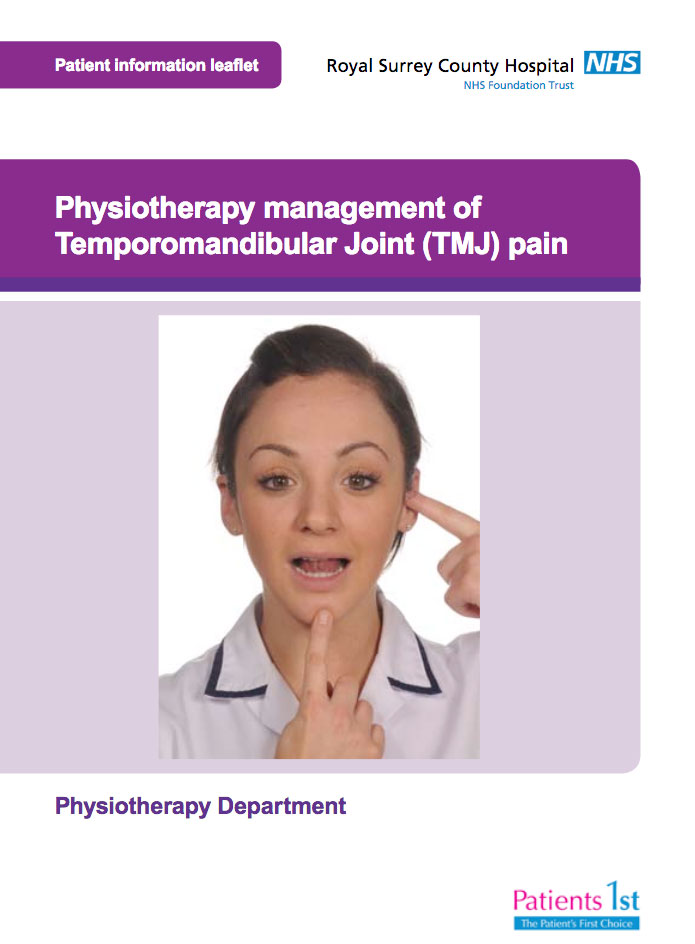11 ways you can relieve jaw pain
1. Apply heat or cooling packs
Apply moist heat or cold, whichever feels better, to the joint or muscles that are sore. Heat or ice applications used for 5 to 10 minutes three or four times per day can reduce joint or muscle pain and relax the muscles. For heat, microwave a wet towel for approximately 1 minute or until the towel is warm. You can also wrap a moist hot towel around a hot water bottle to keep it warm longer. For cold, use ice wrapped in a face cloth. Keep ice on the painful area only until you first feel some numbness.
2. Watch what you eat
Eat a soft pain–free diet. Avoid hard foods, such as French bread and avoid chewy food such as steak and toffees. Cut fruit and steamed vegetables into small pieces. Do not chew gum. Take calcium and magnesium as a supplement, 600mg calcium to 300mg magnesium as well as a multivitamin.
3. Chew on both sides
Chew your food on both sides at the same time or alternate sides to reduce the strain on one side. Chew with your back teeth rather than biting with your front teeth.
4. Stop clenching
Avoid oral habits that put strain on the jaw muscles and joints. These include teeth clenching or grinding (bruxism), teeth touching or resting together, biting cheeks or lips, tongue pushing against teeth, jaw tensing, biting objects e.g. a pen, other habits. If you do these during work or exercise be aware and modify your habits. Of course, you can't control if you clench in your sleep.
5. Relax your muscles
Keep your tongue down and relaxed, teeth apart, and jaw muscles relaxed. You must avoid clenching and grinding your teeth. You should closely monitor your jaw positions during the day (waking hours) so that you maintain your jaw in a relaxed, comfortable position. This involves resting the tongue lightly in the floor of the mouth, allowing the teeth to come apart and relaxing the jaw muscles.
6. Relax in general
Learn and practice relaxation and abdominal breathing. This will help reduce your reactions to stressful life events.
7. Figure it out
Identify the events that trigger the pain. Use a pain diary to review activities that aggravate the pain and modify your behaviour accordingly.
8. Sleep well
Get a good night’s sleep. Manage your sleep environment. Reduce light and noise and lie on a comfortable mattress. For parents of infants, plan an occasional night when you are not responsible for the baby. Reduce stimulating activities in late evening (computer work, running, etc). Avoid sleeping on your stomach. Sleep on your side or back. Always wear your appliance at night if advised to do so.
9. Cut the coffee
Avoid caffeine. Caffeine can disturb sleep and increase muscle tension. Caffeine or caffeine-like drugs are in coffee, tea, Cola and chocolate. Note that some decaffeinated coffee has up to half as much caffeine as regular coffee. You can now buy decaffeinated tea. Waitrose or M&S do a very nice version.
10. Stop making it worse
Avoid activities that strain your jaw, such as resting your jaw on your hand, excessive singing, or use of musical instruments, if they aggravate the pain. Also avoid activities that involve wide opening of the jaw (yawning, taking large bites, prolonged dental treatments etc.) for a period of time until the pain has been reduced.
11. Use medication
Use of anti-inflammatory and pain-reducing medications like ibuprofen, paracetemol or aspirin to reduce joint and muscle pain can help but should be limited.

